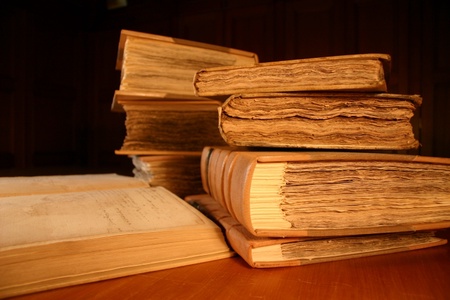Aberdeen's UNESCO-recognised medieval records could provide the inspiration for video games which will bring people face-to-face with life in the Middle Ages.
The Burgh Records are one of the best resources for exploring medieval life in Europe and the period has long influenced creative media from Lord of the Rings to Game of Thrones.
Now researchers at the University of Aberdeen are looking at ways in which the detail contained within the pages of the records can provide the vision for new games both for fun and historical learning.
The project is funded by an Arts and Humanities Research Council (AHRC) Creative Economies Engagement Fellowship through the Scottish Graduate School for Arts and Humanities. It is called ‘Playing in the Archives: Game Development with Aberdeen’s Medieval Records’.
Dr William Hepburn, a historian from the University of Aberdeen, will spend nine months investigating the potential for creative development from the Burgh Records, working alongside experts from industry.
He said: “The influence of the medieval period more than almost any other period in time can be seen in the gaming world. Its close relationship to Lord of the Rings has been formative in fantasy fiction and that in turn has influenced digital media.
“You can see the impact of the medieval theme in character development and game aesthetics, even when they are not directly based in this era.
“Here in Aberdeen we have a truly magnificent resource documenting medieval life and so I am delighted to be working to see what this treasure of our city can offer the wider world of game development.”
The earliest Aberdeen council registers cover a period from 1398 to 1511 and are one of the great reservoirs of historical knowledge on urban and regional life anywhere in northern Europe, earning them recognition from the UK national commission for UNESCO, a body of the United Nations responsible for the protection of the world’s cultural heritage. In 2013 they were inscribed on the Memory of the World Register.
Dr Hepburn said the interactive nature of game design opens up opportunities to engage with the records in a new and interesting way.
“Games can be described as interactive narratives in which the player’s choices guide the direction of the story, and stories from medieval Aberdeen could be represented in this way.
“They can allow us to put someone directly into the shoes of a character from this period. The records present a range of themes which games can provide new ways to think about.
“One is medieval society– the relationships between rich and poor; outsiders and insiders; townspeople and aristocrats; the town and the king. Another is health and well-being - diets, diseases, public health policy and medical care. A third is medieval law – how and why did people end up in Aberdeen’s courts and what happened to them during, and after, their court appearance?”
Dr Hepburn points to existing popular games such Reigns, which places the player in the role of a medieval ruler, whose decisions the player guides by swiping left or right on their device. He says the Burgh Records are full of tales of skulduggery which could work in this, or other game formats.
“The Aberdeen archive offers a rich portrait of the people who made up the town such as Canny Leis, who was punished for flinging the contents of a toilet bucket over a fellow townsperson, or the ruthless John Rutherford, who reneged on his uncle’s dying wish and set his dogs loose on a rival neighbour’s sheep.
“In the popular imagination the video games medium is often defined by its most iconic characters and there are certainly characters to be explored in our medieval records!”
In addition, the records also offer great potential when it comes to the finer details which are essential in creating a realistic backdrop for game design.
“Aberdeen’s medieval records are filled with detail about buildings, tools, foodstuffs, animals and more,” he added.
“For instance, they reveal interesting details about the interaction of humans and animals in the day-to-day life of the town. Local laws were made to prevent pigs running loose on the streets and the town government employed pig catchers.
“This is the kind of detail that features in the many rich worlds games offer for players to explore.”
City archivist Phil Astley, Aberdeen City & Aberdeenshire Archives, said: “Bringing 21st century technology together with Aberdeen’s unique records will make for a fascinating project, with the potential to open up the registers to a completely new audience.”
Dr Hepburn will now be engaging with the games industry to explore the creation of prototype games which can either be developed purely for fun or for specific historic attractions to help visitors explore the period.
He will be supported by Dr Jackson Armstrong as academic mentor and by Steve Aitken, who is Consultant Director of Aberdeen-based Intelligent Plant Ltd, an IT and engineering company for the oil and gas sector, as industry mentor.


